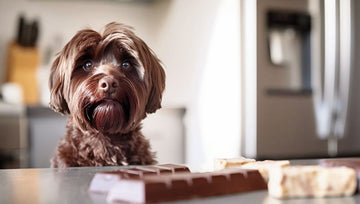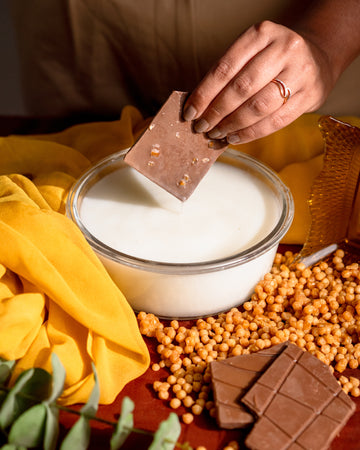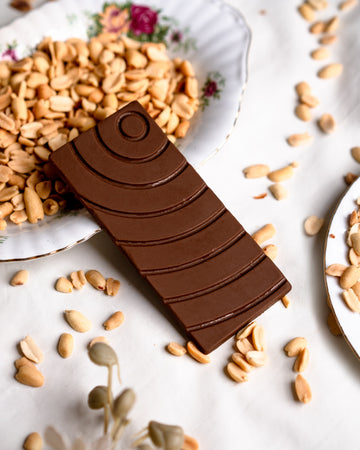We all love to share our favourite treats with our furry companions. But did you know that some human indulgences can be harmful to dogs? Chocolate, while delicious to us, can be toxic for our canine friends. Here at Cavasa, the well-being of all chocolate lovers (both human and furry) is important to us, so let's delve into why chocolate is a no-no for dogs.
The Culprits: Theobromine and Caffeine
Unlike humans, dogs cannot metabolize theobromine and caffeine, two compounds found in cocoa beans. These stimulants remain in a dog's system for much longer than in ours, leading to potential health problems. The severity of the reaction depends on the type and amount of chocolate consumed, the size of the dog, and their individual sensitivity.
Signs of Chocolate Poisoning in Dogs:
Here are some signs to watch out for if you suspect your dog may have eaten chocolate:
- Vomiting
- Diarrhea
- Hyperactivity
- Increased thirst and urination
- Tremors
- Seizures
Keeping Your Dog Safe:
The best way to ensure your dog's safety is to keep all chocolate products out of their reach. This includes chocolate bars, cocoa powder, baked goods, and even beverages containing chocolate.
Alternatives for Sharing the Joy:
At Cavasa, we understand the desire to share delicious treats with your furry best friend. Thankfully, there are plenty of safe and delicious alternatives specifically designed for dogs! Look for treats made with carob, a dog-safe alternative to chocolate with a similar taste.
Cavasa's Commitment to Responsible Indulgence:
At Cavasa, we believe that everyone deserves a delightful chocolate experience. While our treats are crafted for human enjoyment, we encourage responsible pet ownership. Keep your Cavasa chocolates out of reach of your canine companions, and explore the wide variety of dog-safe treats available to spoil your furry friend!
Remember: By being mindful of what we share with our pets, we can ensure a happy and healthy life for both humans and canines.
Additional Tips:
- Educate family members and guests about the dangers of chocolate for dogs.
- Consider storing your Cavasa chocolates in a sealed container or cabinet that is inaccessible to your dog.
- If you suspect your dog has eaten chocolate, contact your veterinarian immediately.
Let's all indulge responsibly and keep our furry friends safe coz after all
'Furever Friends, Forever Safe'.




